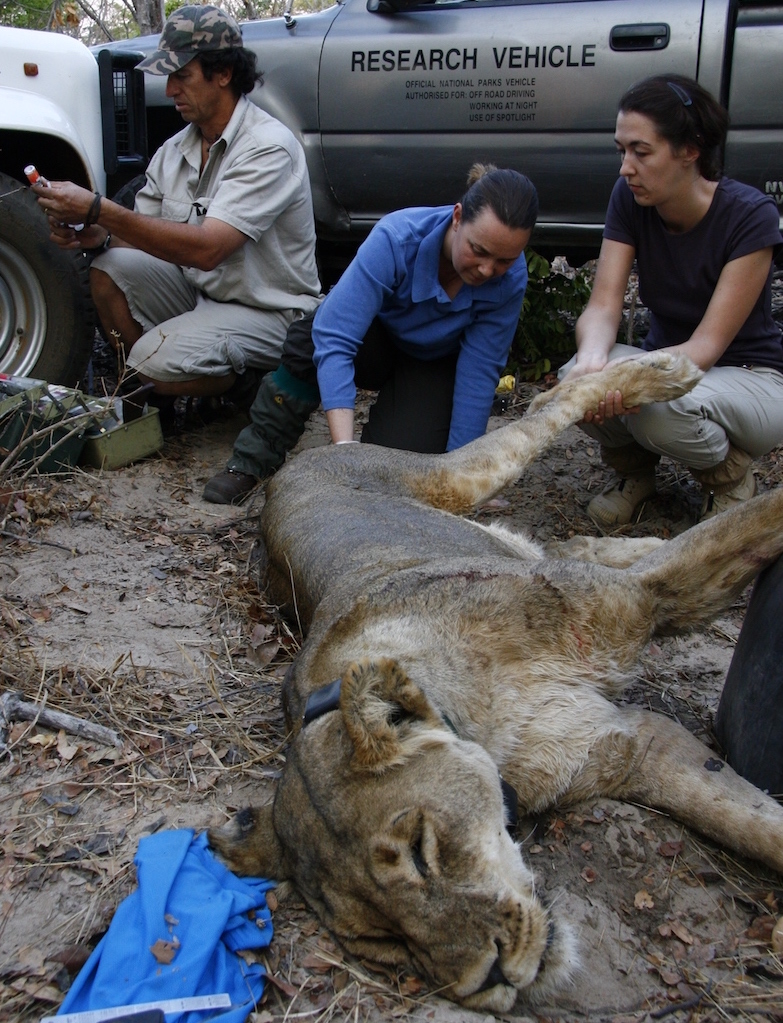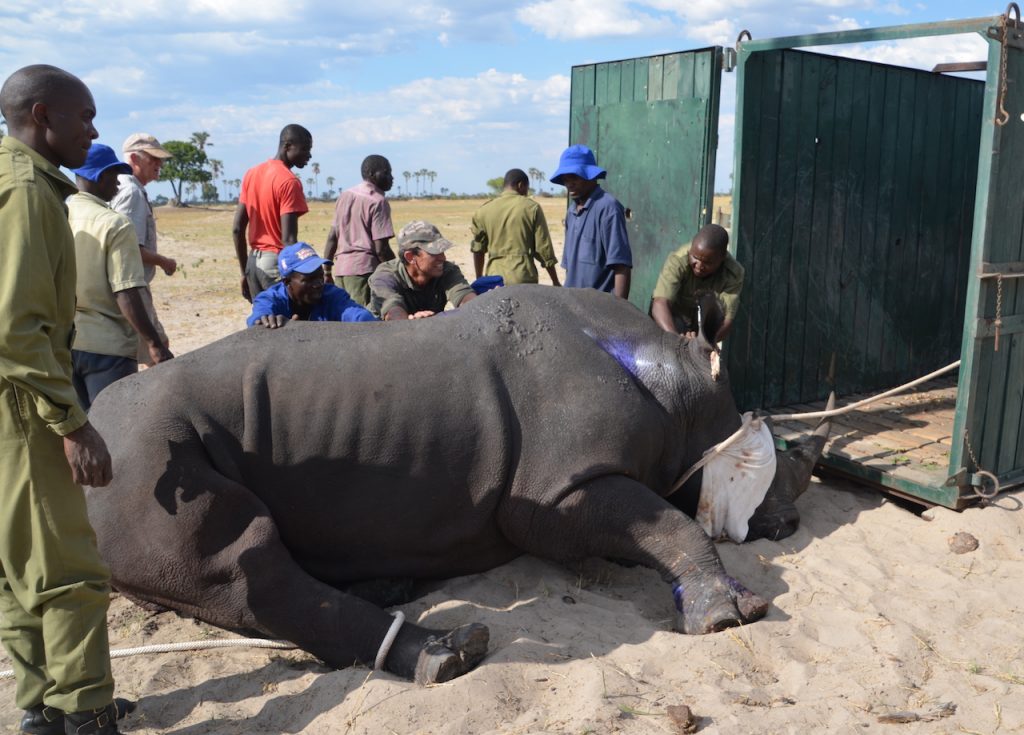Wildlife poaching is generally classified as being either “Commercial” or “Subsistence” poaching.
“Commercial Poaching” is invariably driven by human greed and carried out by ruthlessly skilled, professional operators using high powered rifles or cyanide poison in pursuit of high value products like ivory or rhino horn!
“Subsistence Poaching” is usually determined by the socio-economic health of a rural area with levels increasing as desperate and hungry people start using wire snares and steel gin-traps to kill wildlife for food and basic survival!
Beyond the satisfaction of having saved a snared wild animal from a slow and agonizing death, there’s usually an interesting “behind-the-scenes” story associated with every wildlife rescue.
Over the last 20 years DART has actively assisted many Wildlife Research and Endangered Species Protection Projects in Hwange National Park.
This includes assistance provided to :
Dr Andy Loveridge’s Hwange Lion Research
Dr. Nolwenn Drouet-Houget’s Hyaena Project
Mr. Godfrey Mtare’s Hwange Leopard Project
Mr Peter Blinston’s Painted Dog Project
Mr Arnold Tshipa’s Hwange Elephants Study
Each one of these projects has provided us with unforgettable wildlife experiences, long-lasting memories and an insight into a world of wildlife not normally experienced by tourists and other safari visitors to Hwange.
In other cases wildlife relocation can be justified for conservation purposes where a surplus population of animals or an endangered species is captured and relocated to establish the population of this species in another area.
DART will only rescue and relocate a wild animal to save it from being killed in human/wildlife conflict situations.
The increased levels of wildlife poaching that began with the arrival of Covid-19 and the subsequent lockdowns in 2020 soon began to stretch the National Parks’ operational resources to the limit.
DART recognized the challenges and immediately offered to provide direct support. Since June 2020 DART vehicles have been assisting Parks by deploying Park Rangers to remote outposts on a regular schedule
In addition to the wildlife rescue and other conservation work DART carries out, it sometimes becomes necessary for the DART Team to assist rural communities with the treatment of injuries to their livestock and donkeys.
In light of the abuse and mistreatment inflicted on donkeys in rural areas, DART recently set up the Dete Donkey Sanctuary where injured donkeys are now being treated and regular workshops teach people how to care for their donkeys and free humane harnesses and straps are fitted to their donkey carts.

© DART Wildlife Rescue





